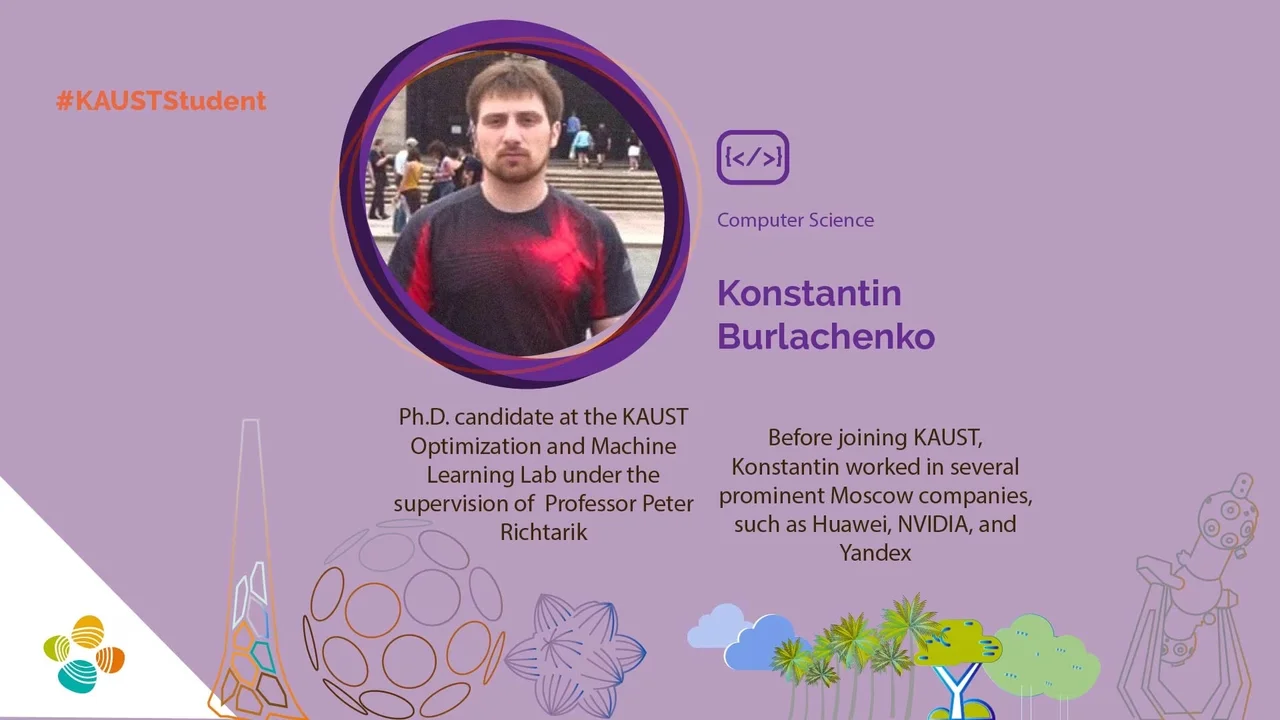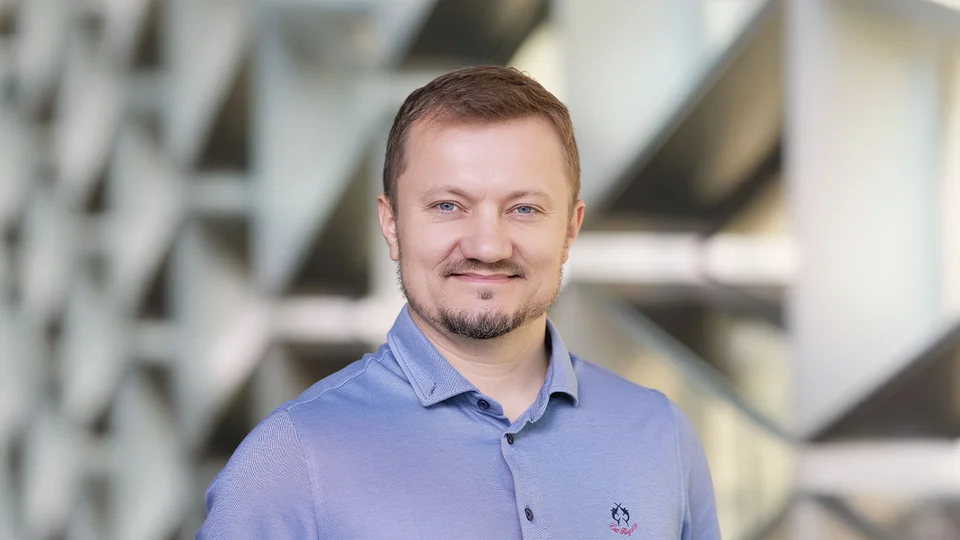
Meet KAUST student: Konstantin Burlachenko
Konstantin Burlachenko holds a master’s degree in computer science from Bauman Moscow State Technical University (BMSTU), Russia. After graduating from BMSTU, he worked in several prominent Moscow companies, such as Huawei, NVIDIA, and Yandex. He joined KAUST in August 2020 as a Ph.D. candidate and member of Professor Peter Richtarik's Optimization and Machine Learning Lab.
About
Konstantin Burlachenko holds a master’s degree in computer science from Bauman Moscow State Technical University (BMSTU), Russia. After graduating from BMSTU, he worked in several prominent Moscow companies, such as Huawei, NVIDIA, and Yandex. He joined KAUST in August 2020 as a Ph.D. candidate and member of Professor Peter Richtarik's Optimization and Machine Learning Lab.
What was your main subject during a master's degree? Why did you choose it?
During my master’s degree, I worked on the automatization of various processes for my university department. My graduation project topic was developing a specialized distributed information and analytical system.
After graduation, I worked first in computer graphics and physics-based animation. Then I shifted my scope of interests and worked on computer vision, specifically on an inverse computer graphics problem. Eventually, I created systems for machine learning and artificial intelligence for both NVIDIA and Huawei.
Why have you chosen to pursue a Ph.D. at KAUST?
My class at Stanford, EE364A Convex Optimization with Prof. Stephen Boyd, covered the theory, applications and algorithms of convex optimization; this class focused my doctoral interests and convinced me to start a Ph.D. degree in the field.
Then in 2019, I attended a workshop in Moscow, where Prof. Richtarik delivered an excellent talk touching on his research at KAUST. Peter’s talk really piqued my interest in joining KAUST. I also received glowing feedback about the University from several fellow Russian students.
When did your interest in computer science arise? What are your research interests?
My interest in computer science began during my graduate studies when I first aspired to render physical phenomena with computer graphics.
I am now working on large-scale mathematical optimization systems for machine learning and AI, especially those that require high-performance computing approaches.
What do you do in your spare time? What are you passionate about?
I swim, read, and spend time with my family. My passion is playing chess (which I have achieved a candidate master’s level in).
What is your future outlook?
At KAUST, my goal is to gain a deep understanding of frontier research and open problems and contribute new approaches to distributed optimization and training.
